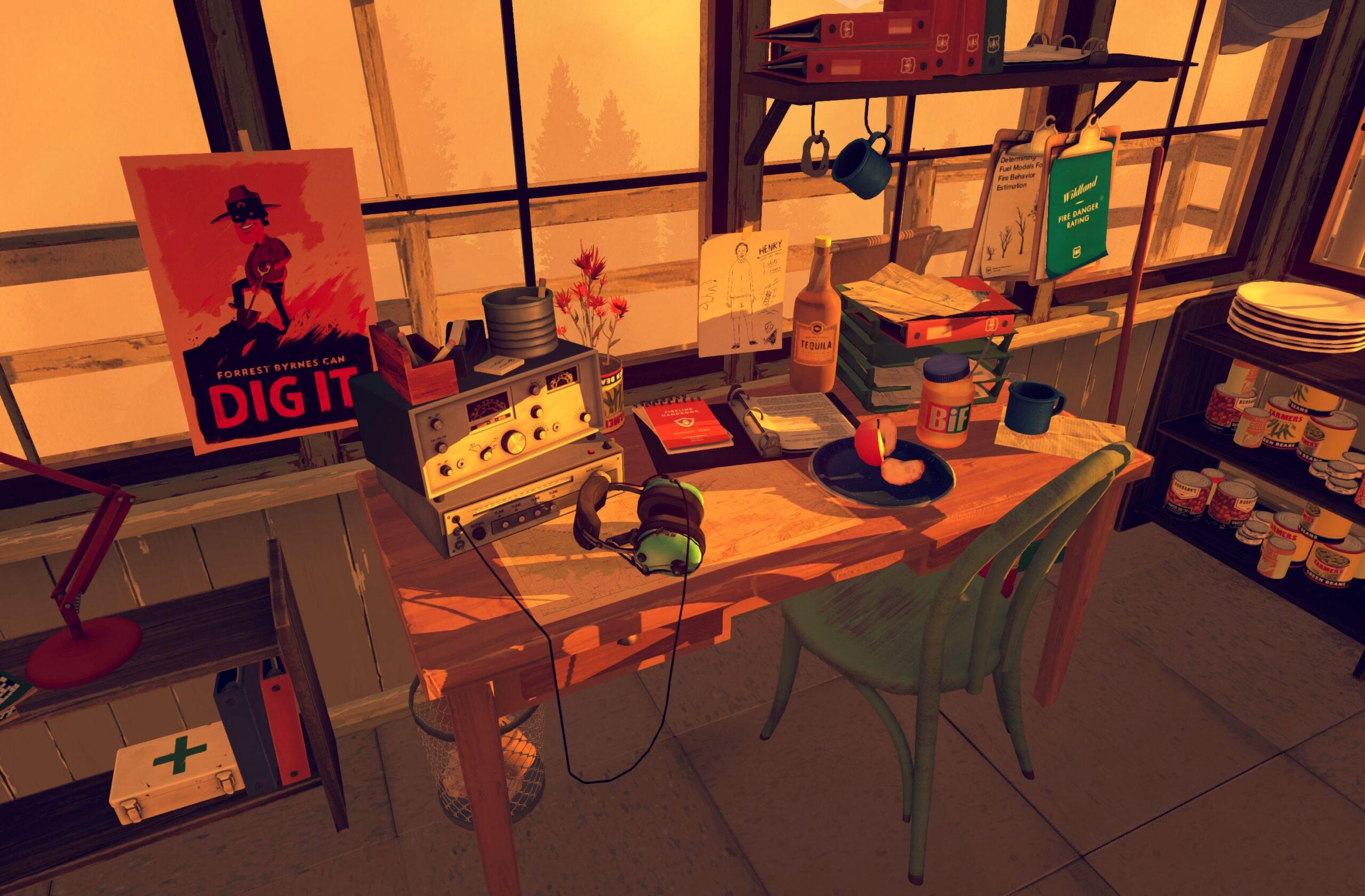I sat down intending to play just the first hour or two like the assignment description encourages…
But Campo Santo got me. And I’m happy to have been “got”. I played the whole of Firewatch in one sitting, which took about four hours. Not only is it aesthetically gorgeous, but the whole time I could not put it down. It felt like being engrossed in a really good book, which, I think, is an apt comparison. Firewatch is truly carried by its writing. Sure, you’re aware at times that you’re simply moving through the story without much affecting it, but you’re so curious to see what happens next it doesn’t matter much. The mystery is compelling, the dialog is well-written and frequently subtle, and your character has a complex internal conflict to wrestle with along the way. Which of course makes me wonder: could Firewatch have been a book? Or perhaps a movie?
Did it need to be a game?
I’m inclined to say the answer is no, but that’s probably a good thing. Most game stories would be completely unable to stand on their own as works of fiction, and a break from that tradition is a breath of fresh air. Moreover, Firewatch is better as a game than it would have been as a book, for two reasons.
First, the mechanic of walking creates something most other mediums would really struggle to create: empty space. As you walk from location to location along familiar paths, the game invites you to consider what has happened so far, what might happen next, what the character you’re playing thinks about all this. What you think about all this. What would you do if your wife got dementia? And so on.
It reminds me of the famous piece of music 4:33, which invites its audience to simply sit and listen to silence (or the ambient background noise of life) for four minutes and thirty-three seconds. It’s a hard effect to pull off in most media, requiring an audience that is both patient and bought into the idea. Here, it’s easy. Just make them walk for a bit to unlock the next piece of story.
Plus, it’s clear Firewatch takes this space and makes use of it. Not just by giving you a complex personal and moral question at the start to mull over, but also by the game’s emphasis on solitude. Outside of the voice on the other end of the radio, which you can only access sometimes anyway, I didn’t see a single other person until the end of the game. It’s easy to not feel alone when you’re busy and new things are happening. It’s much, much harder when you’re simply forced to walk for a bit. In this way, the mechanic of walking creates a dynamic of empty mental space, which in turn creates the aesthetic experience of contemplation and solitude.
Second, the game takes advantage of the ownership of one’s actions inherent to having a player. This ownership makes the “I/we didn’t do it” element of the story far more powerful. You were in control of the character. You didn’t do it.
It’s amazing that just controlling the WASD keys can do so much for the emotional experience, but insofar as walking gives you a sense of agency within the story and embodies you within the protagonist, the difference is monumental. Firewatch can therefore be much more personal than a passively observed story about a character that didn’t do it, because ultimately in a story without even the limited agency Firewatch offers you, the person who did or didn’t do it is not you, the reader/player, in the same sense.
By incorporating walking into its story, Firewatch creates space and gives the player ownership of their characters’ actions (or, in this case, lack thereof). Yes, it only works because the writing is fantastic, but the game mechanics, and walking specifically, undeniably elevates the narrative.
It’s 2am now, and I’m not even mad about it. Firewatch was worth it.



